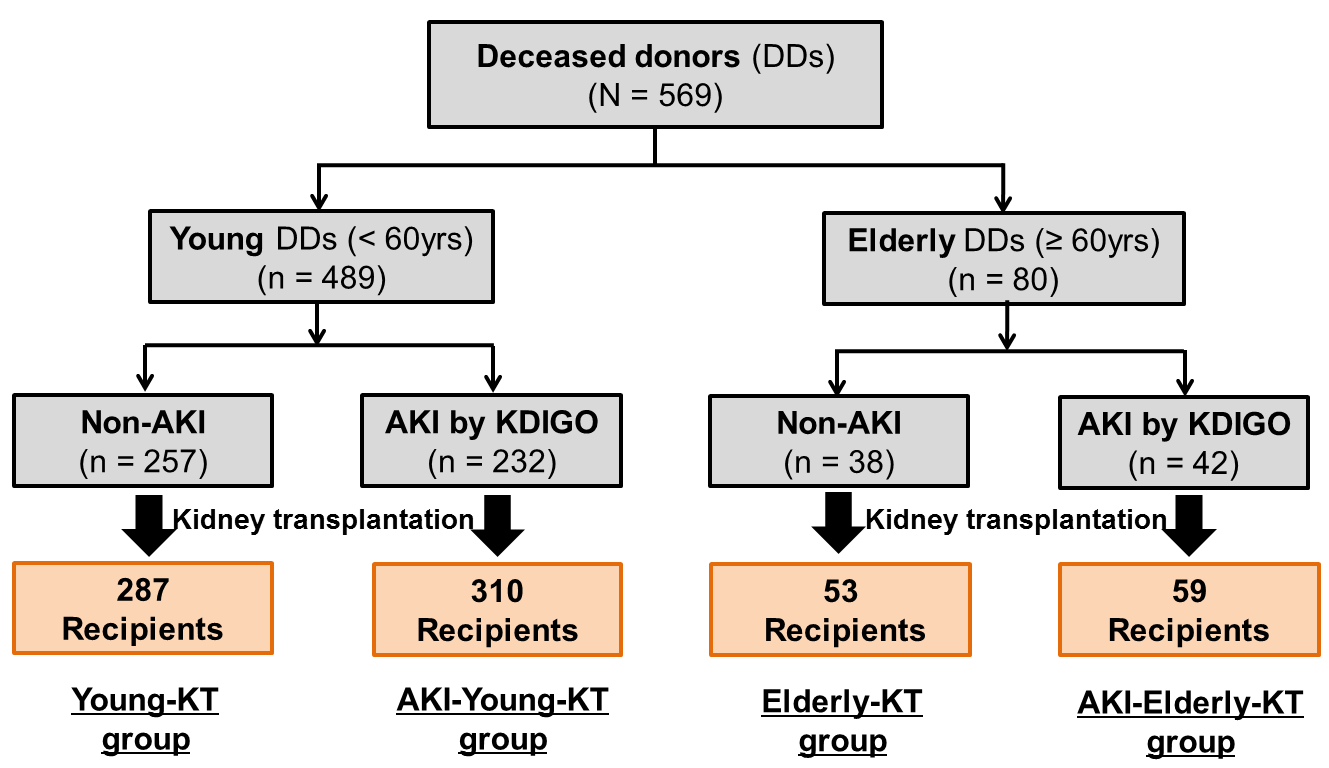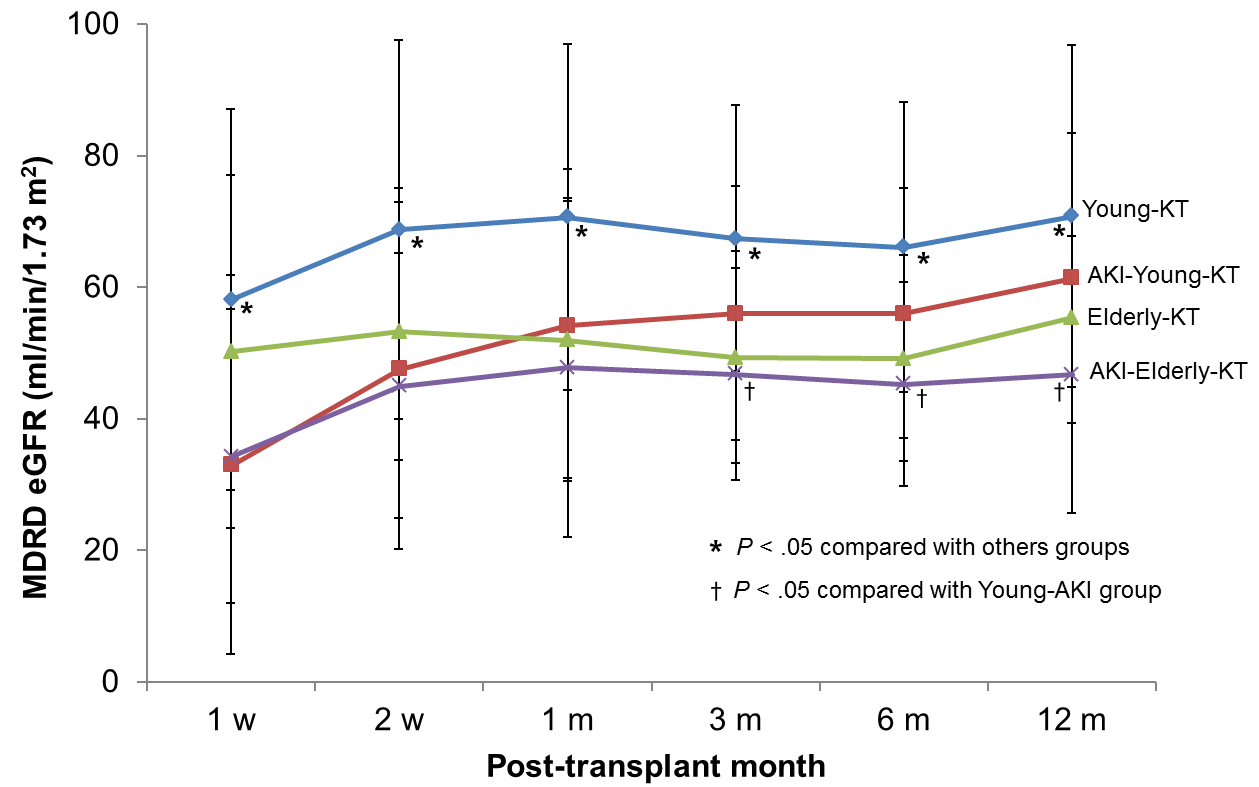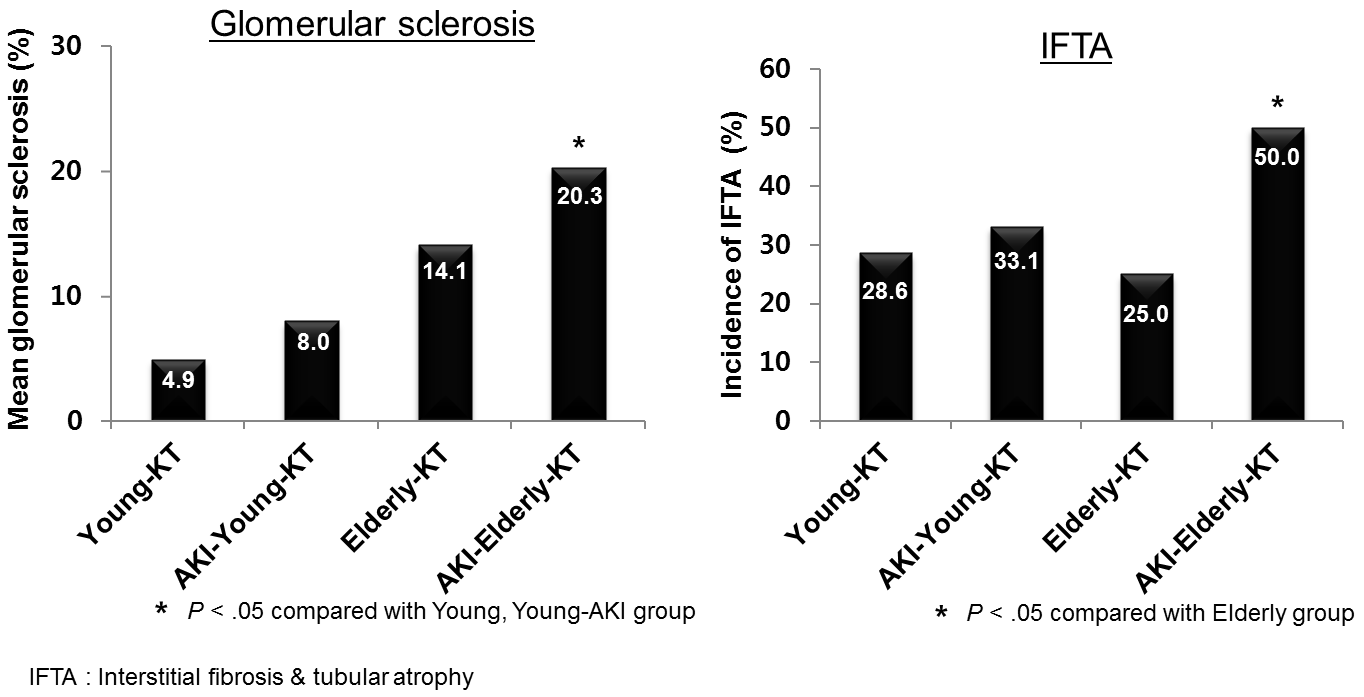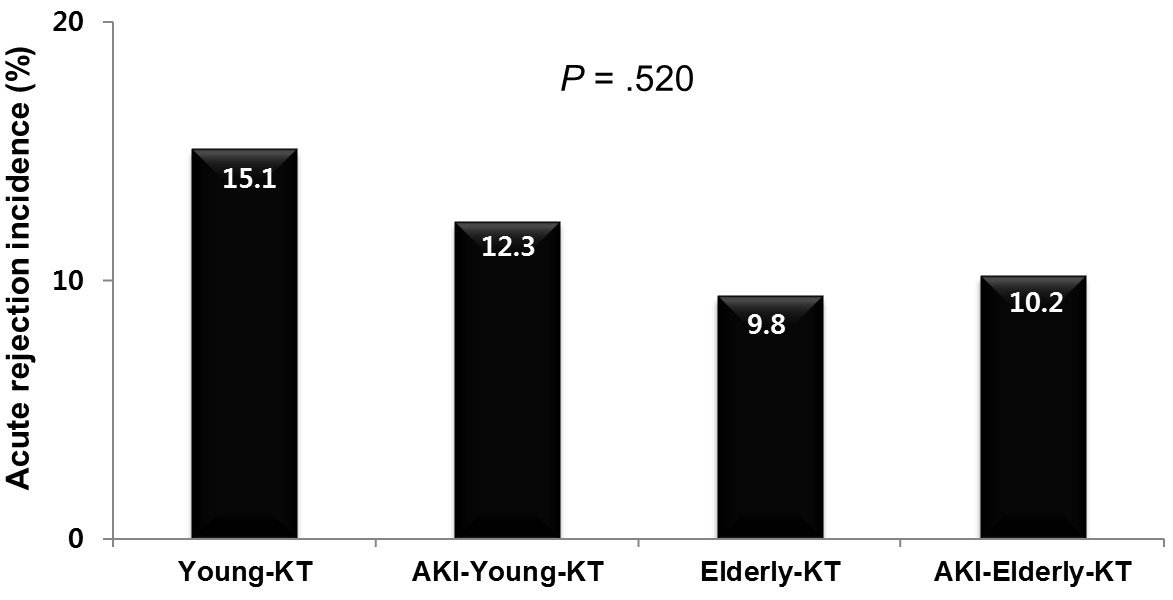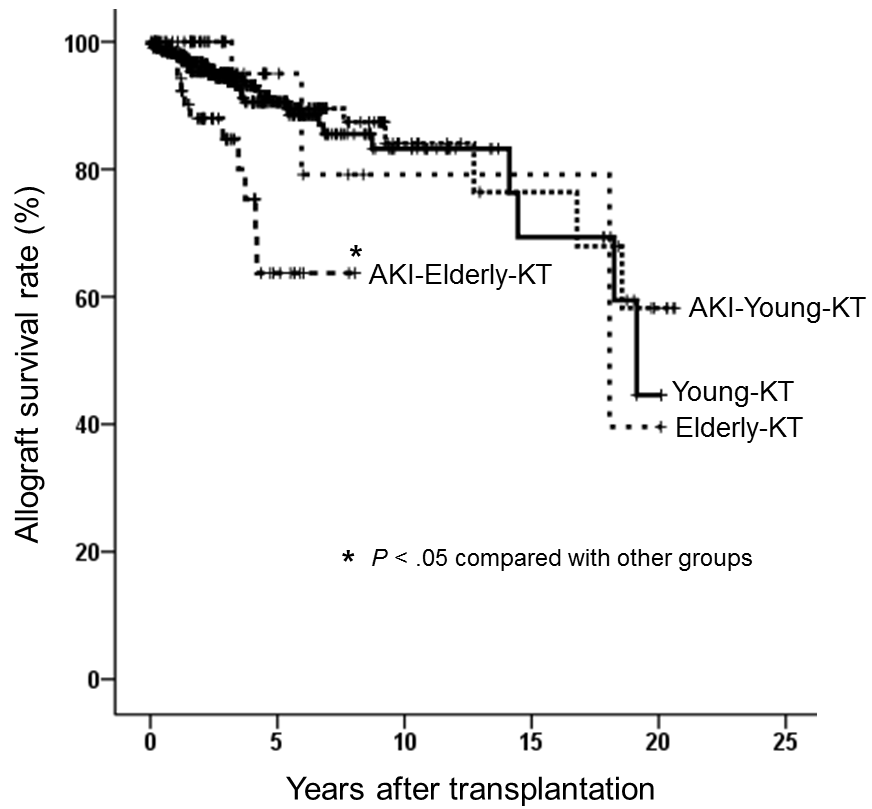Impact of Acute Kidney Injury in Elderly Deceased Donor on the Post-Transplant Clinical Outcomes
1Internal Medicine, Daejeon St. Mary`s Hospital, Daejeon, Korea, Republic of, 2Internal Medicine, Seoul St. Mary`s Hospital, Seoul, Korea, Republic of, 3Internal Medicine, Uijeongbu St. Mary`s Hospital, Uijeongbu, Korea, Republic of, 4Internal Medicine, Keimyung University Dongsan Medical Center, Daegu, Korea, Republic of, 5Internal Medicine, Incheon St. Mary`s Hospital, Incheon, Korea, Republic of
Meeting: 2019 American Transplant Congress
Abstract number: C92
Keywords: Donors, marginal, Graft failure, Kidney transplantation
Session Information
Session Name: Poster Session C: Kidney Complications: Late Graft Failure
Session Type: Poster Session
Date: Monday, June 3, 2019
Session Time: 6:00pm-7:00pm
 Presentation Time: 6:00pm-7:00pm
Presentation Time: 6:00pm-7:00pm
Location: Hall C & D
*Purpose: The proportion of kidney transplantation (KT) from deceased donors (DDs) with acute kidney injury (AKI) or aged more than 60 has increased, but it is still unclear whether clinical outcomes of KT from elderly DD with AKI are acceptable. We investigate the impact of AKI in elderly DD on post-transplant clinical outcomes in Korea.
*Methods: 709 kidney transplant recipients (KTRs) receiving kidneys from 569 DDs were included from 4 transplant centers. KTRs were classified into the elderly-KT or young-KT group according to 60 years of donor age and both groups were divided into the AKI-KT or non-AKI-KT subgroups according to the presence of AKI by KDIGO criteria in DDs. We compared the clinical outcomes among those four groups and investigated the interaction between donor age and AKI in donors on the clinical outcomes.
*Results: The allograft function assessed by the Modification of Diet in Renal Disease equation was significant lower in the AKI-elderly-KT group than the AKI-young-KT group from 3 months after KT. These differences in allograft function between two groups showed a deteriorating pattern by 12 months from KT in each analysis (34.3±22.4 vs 33.0±29.0; P>.05, 47.8±25.8 vs 54.2±26.3; P>.05, 46.8±16.1 vs 56.0±20.2; P<.05, 45.3±15.5 vs 56.0±22.1; P<.05 and 46.7±21.3 vs 61.4±26.2 ml/min/1.73 m2;P<.05 at 1 week, 1 month, 3 months, 6 months and 12 months after KT, respectively). However, the allograft function was not difference between the elderly-KT and AKI-young-KT groups by 12 months from KT. In allograft biopsies performed within 3 months, the incidence of interstitial fibrosis and tubular atrophy was significantly higher in the AKI-elderly-KT group than the young-KT, AKI-young-KT and elderly KT (50.0% vs 28.6% vs 33.1% vs 25%; P<.05). The mean glomerular sclerosis was significantly higher in the AKI-elderly-KT group than the young-KT and AKI-young-KT (20.3% vs 4.9% vs 8%; P<.05). However, the incidence of acute rejection was not different among four groups. The allograft survival rate was significantly lower in the AKI-elderly-KT group than the other three groups, but there was no different among the other three groups. The patient survival rate was not different among four groups.
*Conclusions: The presence of AKI in elderly DDs may impact the long-term allograft outcomes of KTRs, which is different from young DDs.
To cite this abstract in AMA style:
Kim J, Lee J, Kim Y, Jin K, Han S, Hong Y, Chang Y, Kim S, Yoon H, Yang C, Park W, Chung B. Impact of Acute Kidney Injury in Elderly Deceased Donor on the Post-Transplant Clinical Outcomes [abstract]. Am J Transplant. 2019; 19 (suppl 3). https://atcmeetingabstracts.com/abstract/impact-of-acute-kidney-injury-in-elderly-deceased-donor-on-the-post-transplant-clinical-outcomes/. Accessed January 8, 2026.« Back to 2019 American Transplant Congress

